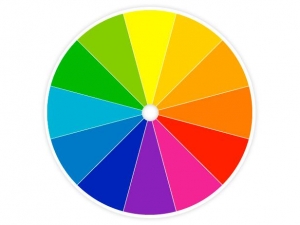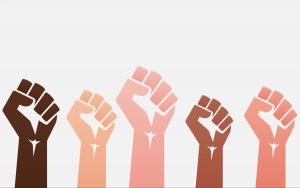Is Vaping Really a Healthy Alternative?

Throughout the past decade, vaping has become one of the most popular forms of smoking. According to the World Health Organization, vaping has had a massive increase since 2011 from 7 million people to 48 million vaping in 2018. Vapes have become increasingly popular not only due to the claims that they are a healthy alternative, but also because of their convenience. It has recently caught attention due to the deaths that have occurred from vape cartridges and the chemicals in them causing mysterious lung illnesses. Although there is a small portion of data proving that vaping is slightly healthier than smoking cigarettes, I think it is not a healthy alternative, and here’s why.
E-cigarette vaporizers most commonly contain nicotine liquid that gets that gets turned into vapor through a coil that burns it and heats it up enough for you to inhale it then blow it out. Vaporizers are made up of lithium batteries (like the ones in your phone), coils, a chamber (commonly called tank) for the e-liquid and a mouthpiece so you can breathe in the vapor. To get vapor, the coils inside the vaporizer burn the e-liquid just hot enough so that it produces the vapor you breathe in through the mouthpiece. The original vapes to release didn’t have too many chemicals and were mostly made up of nicotine liquid extracted from tobacco. Once vapes started to gain popularity and flavors were added to them, that’s when everything changed.
In recent years, Juul has exploded as a company and its popularity has been exponentially growing in sales and has been consumed by young teenagers the most. Juul have pods (or cartridges), which contain flavored nicotine and usually come in packs of 4 pods and are sold at many convenience stores (teenagers have hugely latched onto Juul because the flavor makes it nicer to consume.) They have recently been under flack due to the people getting incredibly addicted to them fast and getting so sick to the point where they need to be hospitalized. There are even several cases of parents suing Juul in recent years due to their children getting terribly addicted. I currently know at least five people from my hometown that heavily Juul and they know they do but can’t stop.
I remember in 2018 when I came home for the summer and saw one of my good friends (whose name I’m not going to disclose) who I have known for years and he started smoking a Juul the year prior. This was the summer of junior year and at this point, all of my friends from my hometown smoked weed and nicotine heavily. I did Juul once during the summer, and then I stopped once the school year started and I was headed back off to boarding school for senior year. When I came back for winter break that year, I remember going to my good friend’s house and seeing his trash can in his room completely filled with Juul packages. I nervously asked him how many packs of Juul he would go through in a day. He told me, “uhm, about one pack usually.” Although that doesn’t seem like much because a pack of Juul pods is only four pods, they have much more nicotine than they appear to. One Juul pod (with 5% nicotine) is equivalent to an entire pack of cigarettes, so my friend was going through at least 4 packs of cigarettes worth of nicotine per day. I went home that night a little bit worried for him because of how much nicotine he was taking in daily. That was when I first started to actually worry about what Juul and vapes do to people. At the end of this past summer, I started to see the news about the vaping deaths, and since I know someone from my hometown who’s addicted to smoking Juul pods, this news really made me worried about him being affected.
The situation with vaping deaths also exposed the entire business itself due to so many companies claiming that vaping is a safe alternative to smoking when in reality, vaping is not. Vape addiction is becoming a much bigger deal than most people realize. There has been a surge of parents coming out about their children becoming horribly addicted to Juuls and how that has changed the way their child acts and much more. One of these parents is a mother named Kristen Beauparlant, whose son was a hockey player in high school. She noticed that her son, Cade, was coughing and wheezing during his practices. Sadly, that wasn’t the worst of the symptoms either; Moriah Balingit writes that Beauparlant saw how her son’s “anxiety and mood swings worsened, his outbursts so sudden and explosive that [she] came to fear him.” This is only one of a barrage of many other stories that have been releasing over the past year or so. I think it’s important to mention that Balingit’s article also came out before any of the vaping related deaths began to occur. So, this further proves the negative physical and emotional effects from vape has on people and the health concern for vapes has been happening for much longer than many realize.
Not only have vapes been known to be toxic and have negative effects, but the lack of transparency from vaping companies has gradually began to extinguish the trust in the business. Sadly, this isn’t the first time a company has posed to be healthier than they really are, and most likely won’t be the last time this will occur. If you are a smoker, whether you Juul every day or once in a while, consider the little amount of knowledge out there about vapes and the companies supplying them. Juul and other big companies are not giving the people enough clear and valid information about what they’re selling, so I wouldn’t advise anyone to trust them. To the smoking population, specifically people who vape, I’m not going to pretend to be a hero who will stop all vaping addiction or make the companies more trustworthy. But I do recommend, if you’re going to vape thinking it is safe, look up the company you bought your vape pen from. Check the credibility of the company, and if you have to go as far as calling the company for questions and they give you a not believable answer, then ditch the vape and move on.
BY OMAR SASS
Works Cited
Balingit, M. (2019, July 26). In the ‘Juul room’: E-cigarettes spawn a form of teen addiction that worries doctors, parents and schools. Retrieved from Washington Post: https://www.washingtonpost.com/local/education/helpless-to-the-draw-of-nicotine-doctors-parents-and-schools-grapple-with-teens-addicted-to-e-cigarettes/2019/07/25/e1e8ac9c-830a-11e9-933d-7501070ee669_story.html
Cassidy, S. (2011, October 26). How Eletronic Cigarettes Work. Retrieved September 30, 2019, from How Stuff Works: https://science.howstuffworks.com/innovation/everyday-innovations/electronic-cigarette1.htm
Jones, L. (2019, September 15). Vaping: How Popular Are E-Cigarettes? Retrieved September 30, 2019 from BBC: https://www.bbc.com/news/business-44295336
Rudavsky, S. (2019, August 27). Lawsuit says Juul lured in Carmel teen with candy flavors, bright colors and nicotine. Retrieved September 30, 2019, from Indy Star: https://www.indystar.com/story/news/health/2019/08/27/juul-teen-vaping-lawsuit-nicotine-addiction-youth-social-media-candy-flavor-irritable-headaches/2129949001/
Caprito, A. (2019, September 16). Juul Vape: What is it, why are teens addicted, and is it safe? Retrieved September 30, 2019 from Cnet: https://www.cnet.com/news/juul-what-is-it-how-does-it-work-and-is-it-safe/








